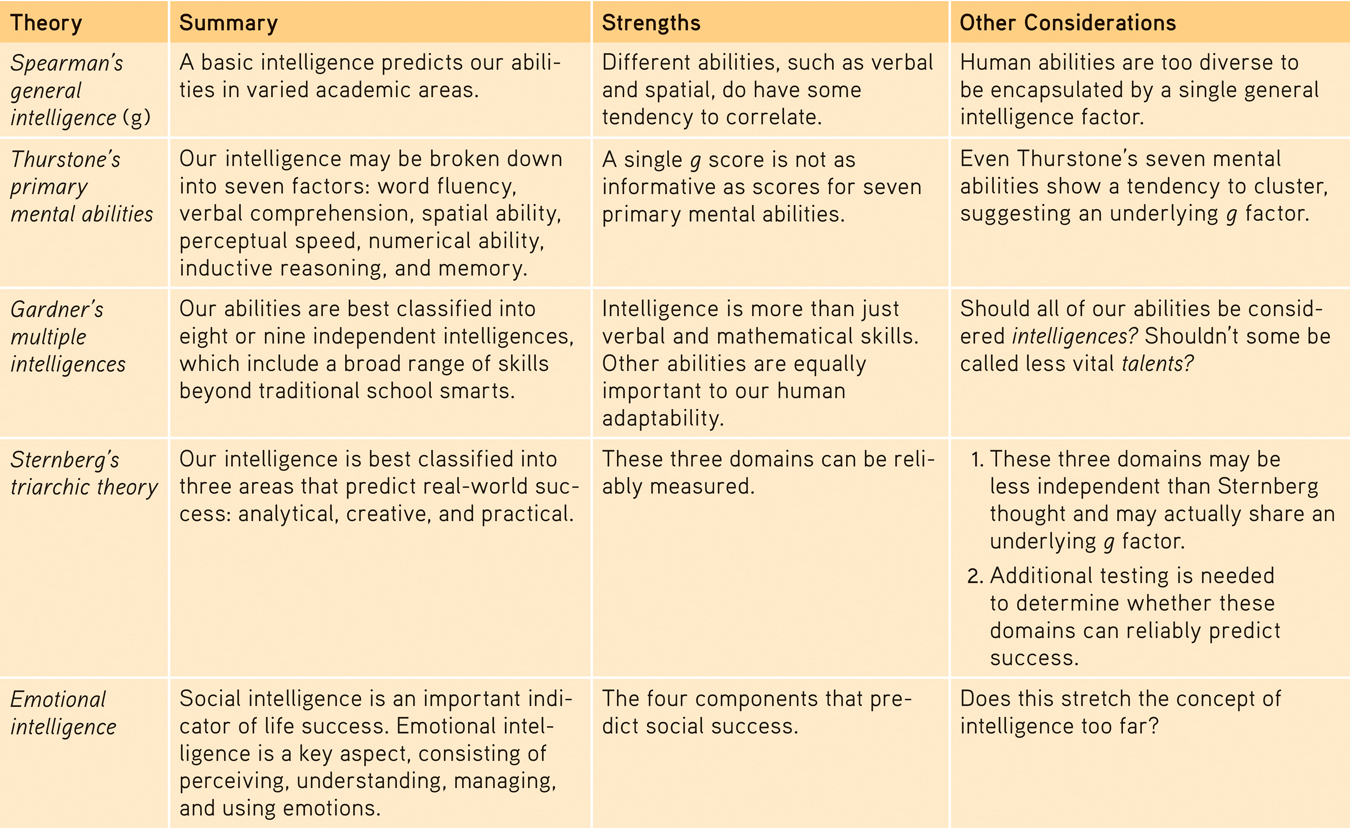29.3 Emotional Intelligence
29-
Is being in tune with yourself and others also a sign of intelligence, distinct from academic intelligence? Some researchers say Yes. They define social intelligence as the know-
One line of research has explored a specific aspect of social intelligence called emotional intelligence, consisting of four abilities (Mayer et al., 2002, 2011, 2012):
- Perceiving emotions (recognizing them in faces, music, and stories)
- Understanding emotions (predicting them and how they may change and blend)
- Managing emotions (knowing how to express them in varied situations)
- Using emotions to enable adaptive or creative thinking
Emotionally intelligent people are both socially aware and self-
The procrastinator’s motto: “Hard works pays off later; laziness pays off now.”
These emotional intelligence high scorers also perform modestly better on the job (O’Boyle et al., 2011). On and off the job, they can delay gratification in pursuit of long-
Some scholars, however, are concerned that emotional intelligence stretches the intelligence concept too far (Visser et al., 2006). Howard Gardner (1999) includes interpersonal and intrapersonal intelligences as two of his eight forms of multiple intelligences. But let us also, he acknowledges, respect emotional sensitivity, creativity, and motivation as important but different. Stretch intelligence to include everything we prize and the word will lose its meaning.
***
For a summary of these theories of intelligence, see TABLE 29.1.
 Table 29.1
Table 29.1Comparing Theories of Intelligence
